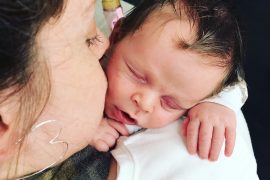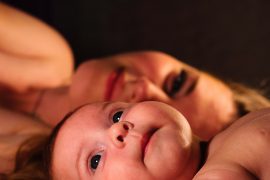By Tracy Cassels
Recently a study came out in Child Development looking at sleep consolidation in toddlerhood and the potential effects on cognition[1]. I have summarised the results elsewhere, but suffice it to say there were no effects of sleep consolidation on cognition, but there were between subject effects of socio-economic status on cognitions.
Take-home: don’t worry if your toddler wakes at night – they aren’t getting dumber because of it.
What struck me though about this study was that the sample was large enough and the sleep data complete enough to give us some pretty good information on the development of sleep in the toddler years, something that can be lacking.
The study examined children recruited at 30 months (2.5 years) and followed them for one year, gathering data at 30, 36, and 42 months of age. The sleep data was gathered using actigraphy to avoid parental bias or mistakes and consisted of two weeks’ data at each time point to allow for averaging of the nights. The number of children with sleep data at each time point was N=420, 324, and 276 for 30, 36, and 42 months, respectively. Considering there’s actigraphy involved, this is an excellent size sample for normative data.
Now I should say that most people actually expect their toddlers to be sleeping through the night and immediately panic when their child wakes.
Some professionals acknowledge waking is normative, but if the child needs assistance, it becomes problematic. I admit I’m never quite sure why needing help is a problem as there are lots of things going on for toddlers that can make wakings more common and harder to handle on their own.
So what is normal? According to the actigraphy on this group of predominantly-Caucasian children (which does matter, but it is what it is):
- Toddlers wake frequently. The average number of wakings that were longer than 5 minutes after sleep onset went from 4.72 at 30 months down to 4.06 at 42 months. Yes, that’s right, at 3.5, kids were still waking an average of 4 times per night. Now, they were not waking their parents for all of these, but as evidenced by needing to be longer than 5 minutes to be counted, they weren’t super brief either.











